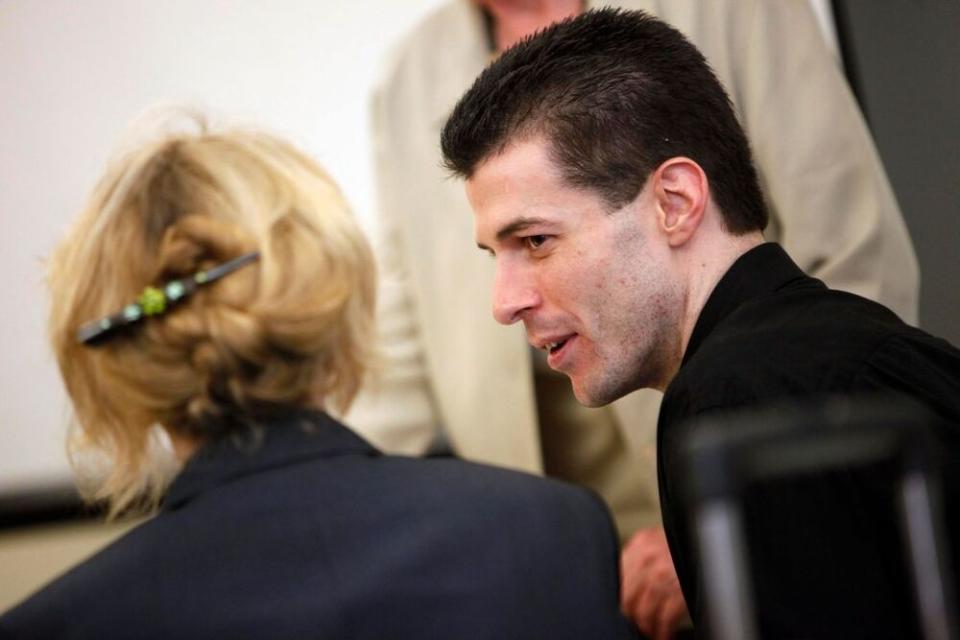Oregon Man Served Nearly 10 Years in Prison for Murder Conviction that Was Later Overturned

For nearly a decade, Nicholas McGuffin sat behind bars in an Oregon prison, insisting he had nothing to do with his girlfriend Leah Freeman’s 2000 disappearance and slaying.
From the very start, the Oregon man, now 37, maintained his innocence, telling local authorities in 2008 he would never have killed the 15-year-old girl. However, police and jurors did not believe him, and in 2011, McGuffin was convicted of manslaughter and sentenced to 10 years.
McGuffin — who was 18 at the time of Freeman’s death — wouldn’t be cleared of the killing and freed until late 2019, when his conviction was overturned with the help of the Forensic Justice Project, an Oregon-based non-profit focused on combating the misapplication of forensic science.
For the first time since regaining his freedom, McGuffin opens up in an interview set to air during the upcoming 20/20, airing on ABC from 9 to 11 p.m. ET. (An exclusive clip is shown above.)
In the clip, McGuffin’s mother, Kathy McGuffin, recalls being at work on Dec. 17, 2019 when her son, who was scheduled for release the following August, asked her if she could pick him up that night.
“It was about 2:30,” Kathy starts. “Nick calls me and he says, ‘I am getting released tonight. Can you be here at 7?’ and I said, ‘Sure.'”
“It was unbelievable that it had finally happened,” she continues. “When we drove up to the prison, there’s Nick with all his wonderful people from the Forensic Justice Project. I think that was the first time I had cried in a long time. I had tears in my eyes. It was wonderful seeing him, knowing he was free.”

Want to keep up with the latest crime coverage? Sign up for PEOPLE’s free True Crime newsletter for breaking crime news, ongoing trial coverage and details of intriguing unsolved cases.
Prior to McGuffin’s release, a judge had reversed his conviction after the revelation that the Oregon State Police crime lab failed to disclose that another man’s DNA has been found on Leah’s shoes.
Malheur County Circuit Senior Judge Patricia Sullivan ruled that vital evidence could have led to an acquittal in the case.
Prosecutors maintain they tried the right person for Leah’s murder. They could’ve appealed the overturned sentence or tried McGuffin again for the killing, but opted against it, feeling they wouldn’t be able to get another conviction, reports The Oregonian.
Freeman vanished back on June 28, 2000, after leaving a friend’s house in Coquille. One of her shoes was found by a nearby cemetery that same night. Her body was recovered five weeks later down a steep embankment. Determining a cause of death was impossible because the body was in an advanced state of decomposition.
In the clip above, McGuffin speaks about the moment before he stepped back into the free world.
“It was overwhelming to be waiting to be released, knowing that was the last time I was every going to have to be in a place like that,” he explains.
The 20/20 episode on McGuffin’s case will feature interviews with McGuffin’s friends, his trial attorney, and the investigators and prosecutors who helped put him away.
Again, 20/20 airs this Friday, February 28, from 9 to 11 p.m. ET on ABC.

